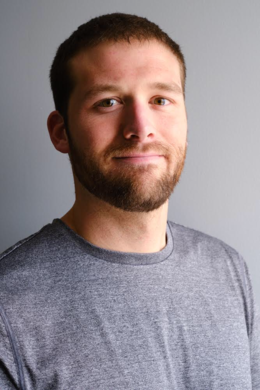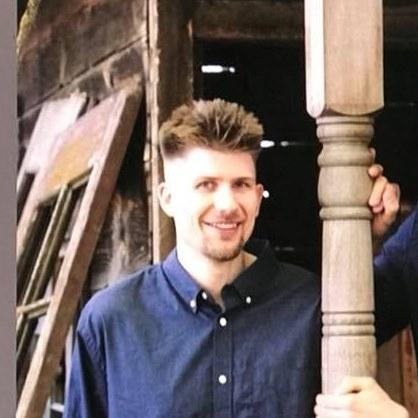I was a student in the University of Kentucky’s Philosophy PhD program from 2018-2023. My area of specialty is ancient Greek philosophy. More specifically, I focus on the discussions of moral virtue in Plato’s dialogues as well as their intimately connected reflections on the nature of moral vice, moral psychology, happiness, erotic love, rhetoric, philosophical education, knowledge, and even Being itself. Outside of ancient philosophy, I take special interest in Asian philosophy, the Existentialist tradition, and the history of philosophy more broadly. Thanks to the wide range of courses offered by University of Kentucky’s department, I was able to take excellent
courses in all of these areas. I was also exposed to numerous illuminating and relevant ideas in a cluster of excellent courses I took in 19th-21st century political philosophy.
My dissertation is titled “The Virtue of Sōphrosunē in Plato’s Gorgias and Phaedrus,” and I am currently trying to get a revised version of it published as a book. It argues that the substantial differences in Plato’s accounts of virtue in the Gorgias and Phaedrus (especially the virtue of sōphrosunē, often translated “moderation”) are best understood as adjustments that Socrates makes in order to have the most pedagogically and ethically valuable impact on the different interlocutors with whom he speaks. While Plato has Socrates give arguments about virtue, love, happiness, and so on that arestrong when taken on their own, he also depicts Socrates tailoring these arguments with the aim of persuading his interlocutors to pursue a more virtuous life. I also explore the cotemporary relevance of Plato’s ideas, which is an element of my dissertation that especially benefited from the support of my director, Eric Sanday. I interpret Plato’s characters not only as his depictions of concrete persons (either real or fictional), but also as symbols for types of people who are common in both ancient and contemporary societies. The pedagogical dynamic between Socrates and his interlocutors mirrors the relationship between the dialogues themselves and their readers. In my view, Plato has a uniquely effective way of guiding his readers toward the pursuit of wisdom and the rest of virtue, and he offers ideas that we can choose to adopt and cultivate in creative ways.
After finishing the PhD program at UK, I was very fortunate to be hired for a one-year position as a Visiting Assistant Professor in Boston University’s Philosophy Department. There I taught Medical Ethics, Existentialism, and Philosophy and Film, a diverse set of classes that I was prepared to teach thanks to the wealth of independent teaching experience I gained as a graduate student. The PhD program’s wide selection of courses that graduate students can teach and the creative freedom it allows in course design are among its best features. Graduate teaching both prepared me for future employment and allowed me to have rewarding, meaningful teaching experiences with undergraduates.
This year I will begin a new position as a permanent Lecturer of Philosophy in the Philosophy and Religious Studies department at Marist College (Poughkeepsie, NY). I’m thrilled to be teaching Ancient Philosophy and Introduction to Philosophy in the fall.
I recently (2023) defended my dissertation on the topic of ecological complexity spanning topics such as island biogeography theory, resilience theory, catastrophe theory, and restoration ethics. My current research addresses applied issues in management and restoration ethics from the perspective of ecological complexity.
Few, if any, doctoral programs could have prepared me as well as UK. The department’s commitment to pluralism and encouragement to pursue interdisciplinary connections across campus provided the best possible environment for my academic growth. Not only do I feel more confident to engage with philosophers on a range of topics across the discipline, but I also had the opportunity to work alongside academics outside the department, including a dissertation co-director from the Geography department (Prof. Tony Stallins).
This upcoming fall, I begin a two-year postdoctoral fellowship in environmental philosophy at the University of Utah. I will be teaching one course a semester (Environmental Ethics) and conducting research aimed at building connections between the Philosophy department and the Environmental Humanities Program, S.J. Quinney College of Law, and Global Change and Sustainability Center.
I attended the University of Kentucky from 2017-2022, defending my dissertation in August 2022. My areas of specialization are 19th and 20th century Continental Philosophy, particularly German Idealism and Poststructuralism. However, thanks in large part to UK’s pluralistic department, I have developed serious interests in Metaphysics (broadly construed), Critical Social Theory, and Ancient Philosophy.
At its core, my dissertation project lies at the intersection of metaphysics and history. Specifically, I’m interested in what I take to be the intimate relationship between metaphysics and historical change which was sparked by a series of questions. How does, or what makes, history ‘happen,’ so to speak? Is history something that unfolds in an linear, narrative like manner? Or perhaps is it something marked by points of legitimate ontological disruption, such that we can talk about new ways of being coming into existence that are entirely different in nature? And lastly, what kind of metaphysics must we articulate to account for ruptures or breaks in historical continuity such as social revolutions or violent fractures in nature such as ecological crises? I argue that properly addressing these question requires a fundamental shift in the way we ‘do’ metaphysics, from a framework based on conditioning to one based on genesis. That is, the aim of metaphysics is not to understand the conditions of world in which we live, or how this world coheres in terms of unity/identity but rather we should try to understand how such a world is something historically generated. Put differently, we should not presuppose categories like structure or identity but try to understand them as produced dynamically.
This is what drew me to a rigorous study of Hegel’s metaphysics in the Science of Logic. Specifically, I argue that Hegel conceives of the structured world of our lived experience in terms of the historical actualization (or expression) of an irreducible, dynamic tension inherent to reality itself. Accordingly, my contribution is that this element of difference and not structure or identity is the most basic metaphysical element of Hegel’s philosophy. Further, I try to show how this allows us to reimagine history in terms of discontinuous and discursive “events” rather than a linear and teleological unfolding.
I am currently an Assistant Teaching Professor of Philosophy at Seattle University. The interdisciplinary nature of UK’s department provides an excellent foundation for graduate students, especially when it comes to their dissertation projects. At UK, students will take a variety of seminars, many outside their area of expertise. This allows them to gain a deeper appreciation for the breadth of the discipline and work with faculty they may not have otherwise been inclined to. More importantly, however, UK’s department provides students with an expansive foundation to cultivate their own ideas and projects.



